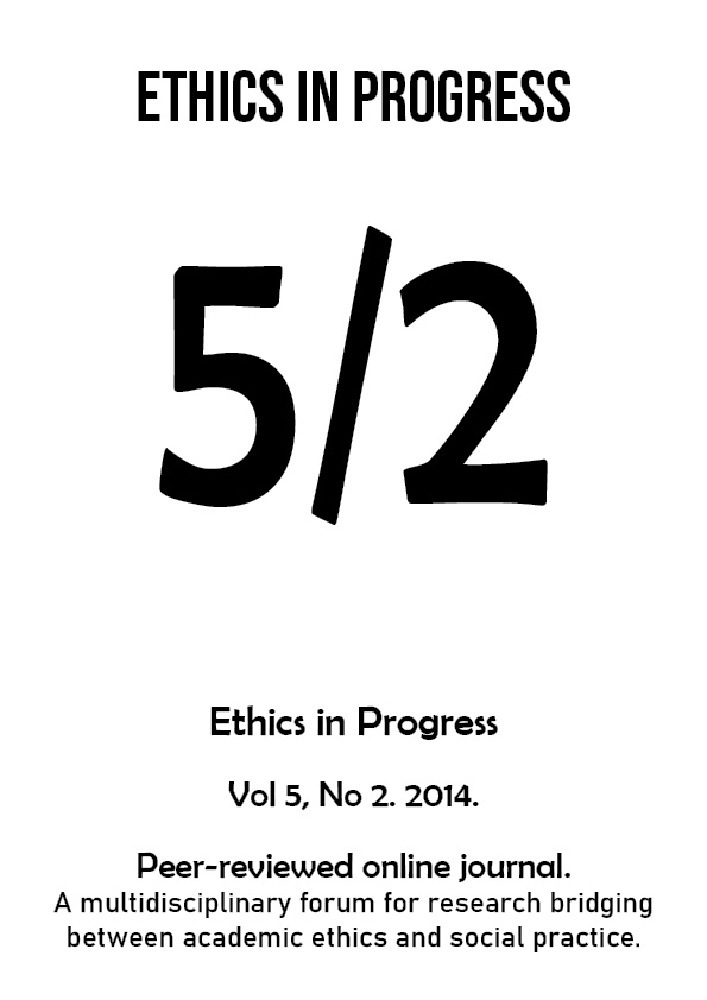Abstract
A Basic Income (universal basic income or citizen’s income) could contribute to the means for living a dignified ecologically- and socially-aligned life characterized by well-being, freedom, and equality. After laying out key definitions, I reflect on moral and ethical issues regarding Basic Income’s implementation, backed by supportive theory and evidence. These arguments organise around interdependence in eco-social systems and core requirements of ontogenesis as well as the intersection and intertwining of socio-cultural, political, and economic factors, known as socio-ecological determinants of global health and well-being. Following that, I briefly make the case for why intersectional and intersubjective aspects should be closely held in contextualized view of Basic Income’s democratised drafting and provision.
References
Adami, R. 2013. “Intersectional Dialogue: A Cosmopolitical Dialogue of Ethics.” Cosmopolitan Civil Societies Journal 5(1): 45–62.
Atkinson, A.B. 2015. Inequality: What Can Be Done?. Cambridge: Harvard University Press.
Canadian Public Health Association. 2015. CPHA Report: Global Change and Public Health: Addressing the Ecological Determinants of Health. Ottawa: CPHA.
Ceballos, G., Ehrlich, P., Barnosky, A., Garcia, A., Pringle, R., & Palmer, T. 2015. “Accelerated Modern Human-Induced Species Losses: Entering the Sixth Mass Extinction.” Science Advances 1(5), DOI: 10.1126/sciadv.1400253.
Dhamoon, R. 2011. “Considerations on Mainstreaming Intersectionality.” Political Research Quarterly 64: 230-243.
Elgarte, J. 2008. “Basic Income and the Gendered Division of Labour.” Basic Income Studies 3(1): 1-7.
Fitzpatrick, T. 1999. Freedom and Security. London: Palgrave.
Frey, C. B. & Osborne, M. A. 2013. “The Future of Employment: How Susceptible Are Jobs to Computerisation?.” OMS Working Paper. Retrieved on September, 7, 2013.
Gerzema, J. & D'Antonio, M. 2013. The Athena Doctrine: How Women (and the Men Who Think Like Them) Will Rule the Future. Hoboken, NJ: John Wiley & Sons.
Hankivsky, E. 2011. “Intersectionality 101.” Burnaby: The Institute for Intersectionality Research & Policy, Simon Fraser University.
Intergovernmental Panel on Climate Change 2014. Climate Change 2014: Impacts, Adaptation, and Vulnerability. Cambridge: Cambridge University Press.
Katada, K. 2012, September. Basic Income and Feminism: In Terms of “the Gender Division of Labor.” 14th International Congress of the Basic Income Earth Network, Munich, Germany Proceedings: 14-16.
Landy, D. 2013. “Talking Human Rights: How Social Movement Activists Are Constructed and Constrained by Human Rights Discourse.” International Sociology 28(4): 409-428.
Levin, K., Cashore, B., Bernstein, S., & Auld, G. 2012. “Overcoming the Tragedy of Super Wicked Problems: Constraining Our Future Selves to Ameliorate Global Climate Change.” Policy Sciences 45(2): 123-152.
Lind, G. 2002. Ist Moral lehrbar? Ergebnisse der modernen moralpsychologischen Forschung. [Can Morality Be Taught? Research Findings from Modern Moral Psychology]. 2nd edition. Berlin: LogosVerlag.
Manson, S. M. 2008. “Does Scale Exist? An Epistemological Scale Continuumfor Complex Human–Environment Systems”. Geoforum 39(2): 776-788.
McFarland, S. 2011. “The Slow Creation of Humanity.” Political Psych., 32(1): 1-20.
Mason, N.C. 2010. Leading at the Intersections: An Introduction to the Intersectional Approach Model for Policy & Social Change. New York: Women of Colour Policy Network.
Neff, K. D. 2003. “The Development and Validation of a Scale to Measure SelfCompassion.” Self and Identity 2(3): 223-250.
Nsamenang, A. B. 2006. “Human Ontogenesis: An Indigenous African View on Development and Intelligence.” International Journal of Psychology 41(4): 293-297.
Pateman, C. 2006. “Democratizing Citizenship: Some Advantages of a Basic Income.“ In Ackerman, B., Alstott, A., & Van Parijs, P. (Eds.),Redesigning Distribution. NY: Verso.
Schwartz, S. H. 2010. “Basic Values: How They Motivate and Inhibit Prosocial Behavior.” In Mikulincer, M. & Shaver, P. (Eds.), Prosocial Motives, Emotions, and Behavior: The Better Angels of Our Nature. Washington: APA 14: 221-241.
Sidanius, J. & Pratto, F. 2001. Social Dominance: An Intergroup Theory of Social Hierarchy and Oppression. Cambridge: Cambridge University Press.
Steyn, M. 2012. “The Ignorance Contract: Recollections of Apartheid Childhoods and the Construction of Epistemologies of Ignorance.” Identities 19(1): 8-25.
Thin, N. 2014. “Positive Sociology and Appreciative Empathy: History and Prospects.” Sociological Research Online 19(2).
Topolski, A. 2011. An Ethics of Relationality: Destabilising the Genocidal Frame of Us vs. Them. Preventing Genocide: Root Causes and Coping Strategies. University of Antwerp, Belgium, 24-25 November 2011.
WHO. (2011). Gender, Climate Change, and Health. Geneva: World Health Organisation.
Wilkinson, R. & Pickett, K. 2014. A Convenient Truth. London: Fabian Society.World Economic Forum. 2013. Outlook on the Global Agenda 2014. Davos, Switzerland: World Economic Forum.
Zelleke, A. 2008. “Institutionalizing the Universal Caretaker Through a Basic Income?.” Basic Income Studies 3(1)




